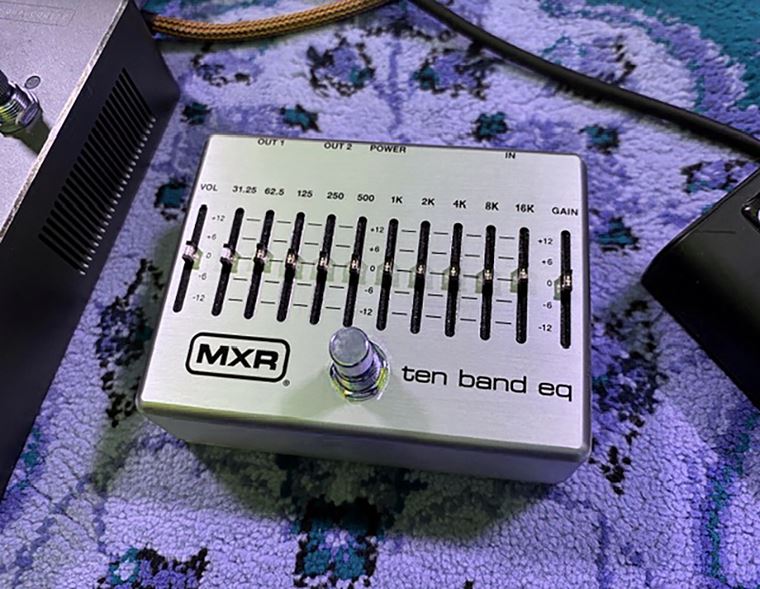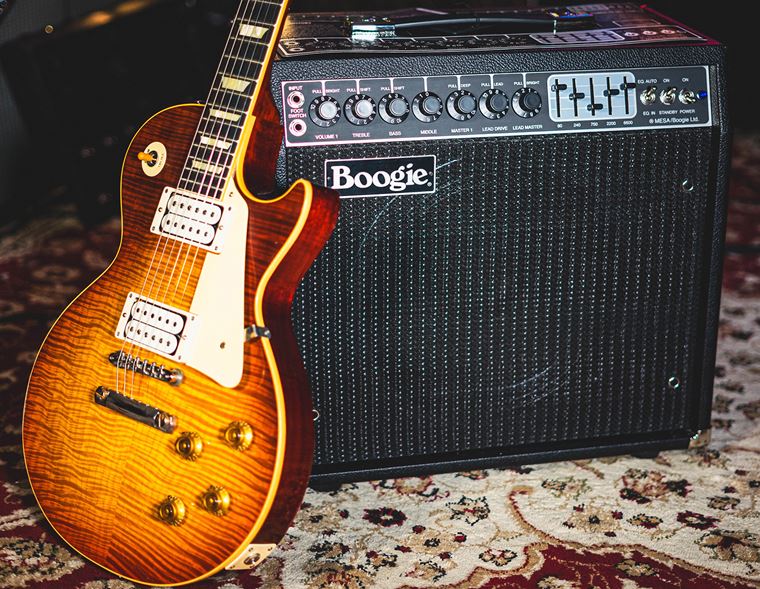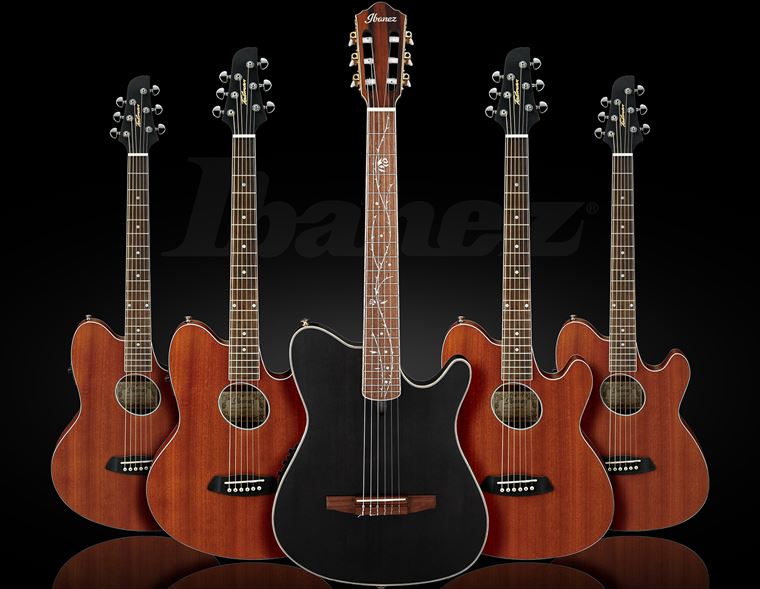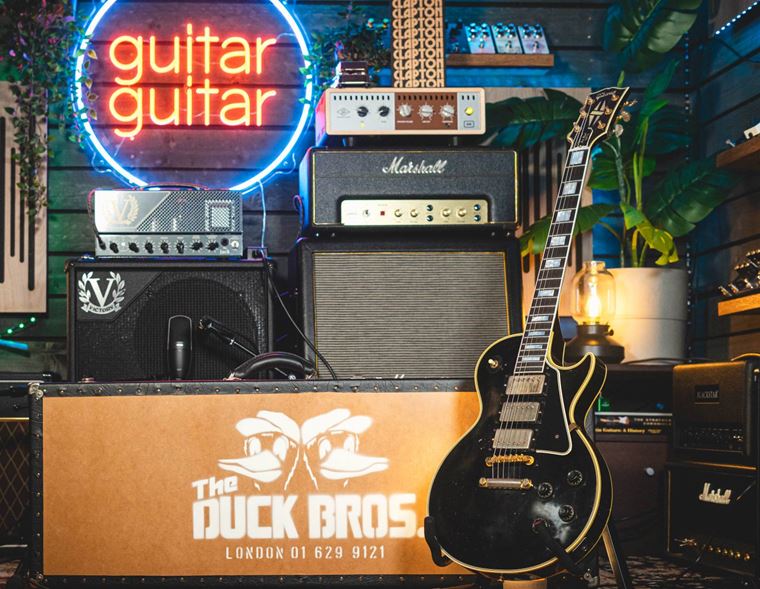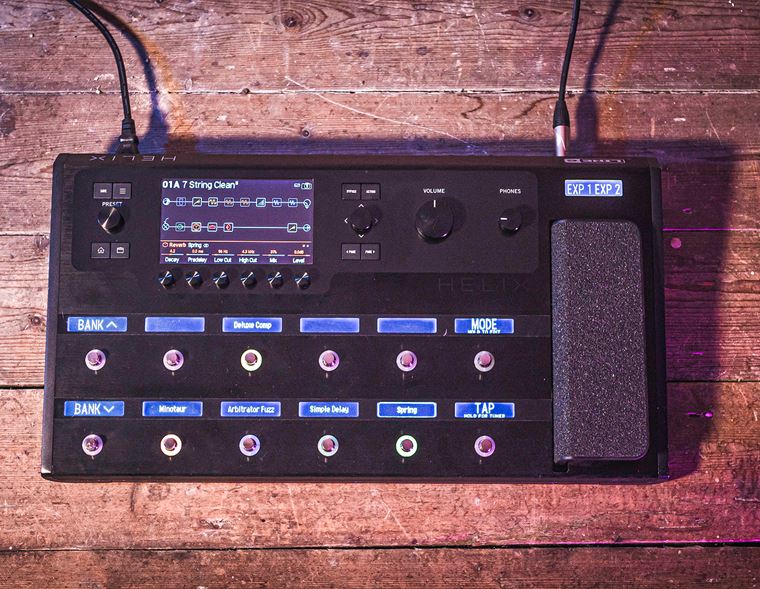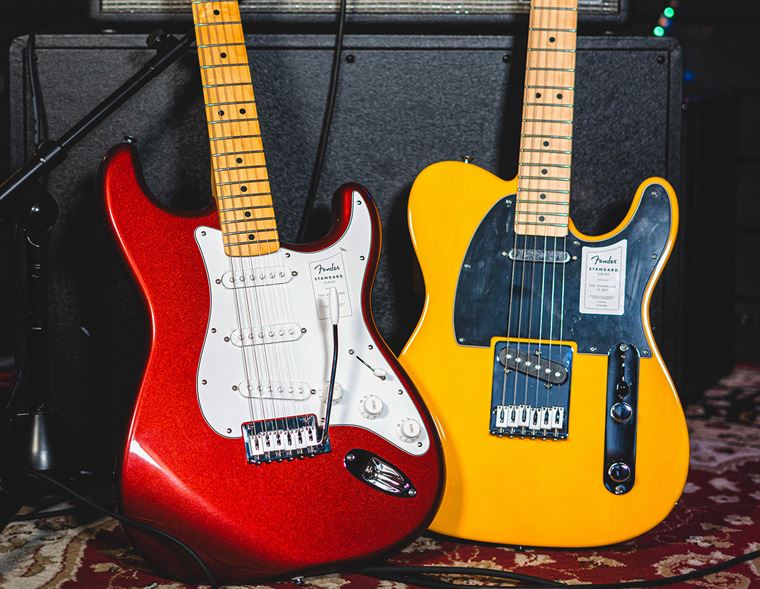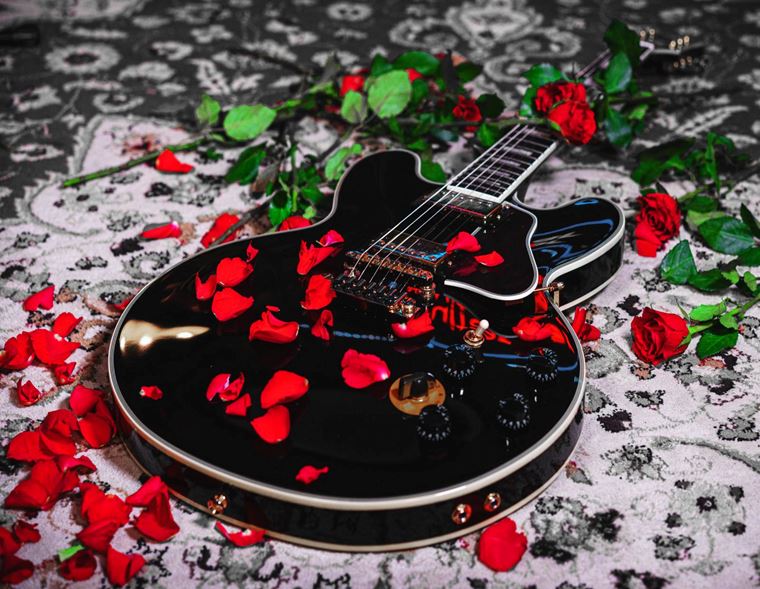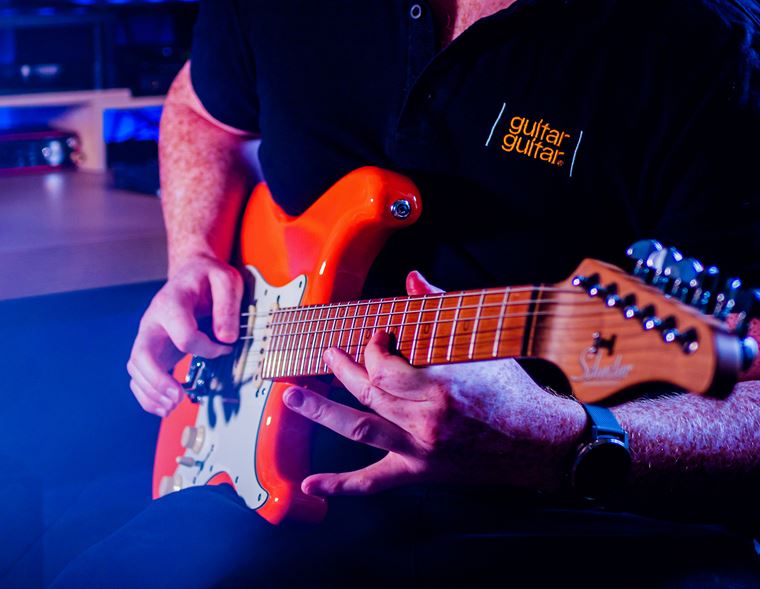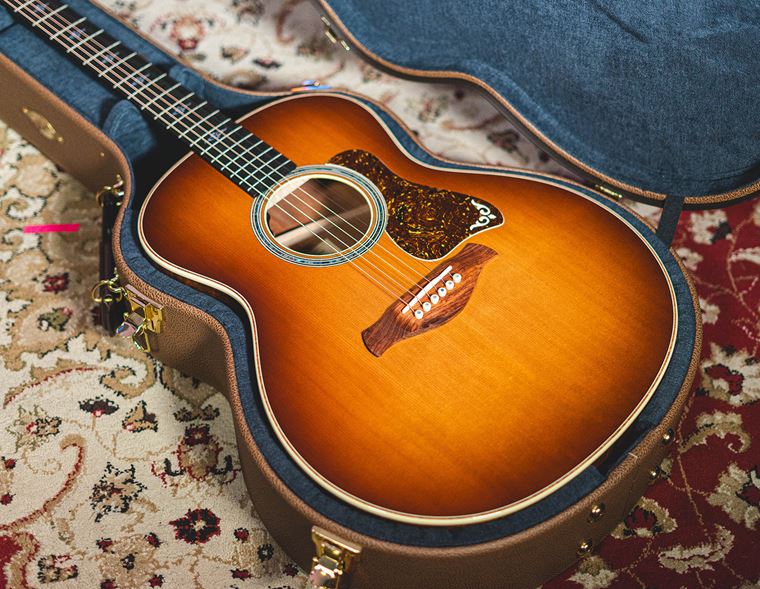Are Custom Guitars Worth it?
Published on 11 March 2019
At guitarguitar, we encounter a lot of different perspectives and opinions on a daily basis. It’s natural: anyone with passion for a subject will have preferences and points of view about the things they are interested in. It’s all part of the love of music and indeed the equipment that is utilised to make it! We feel like it’s healthy and important to voice one’s opinion, share one’s point of view and listen to opposing points of view, too.
One of the most contentious issues is that of custom guitars and their relative value. Custom guitars are, in this context, hand-made top of the range instruments from the major brands (each of these brands normally has some type of ‘Custom Shop’ sub-brand) as well as guitars and basses made by high-end boutique builders. Custom guitars are typically the most expensive instruments we sell, so think of guitars from Gibson Custom Shop, Fender Custom Shop, Suhr, Tyler, and so on as ‘Custom’ guitars.
For this blog, we are going to delve into some of the questions that come along often, namely: who are these for? Why are they so expensive? How are they built? And are they worth it? The answers, of course, are often a matter of opinion and perspective, but we shall ponder them nonetheless.
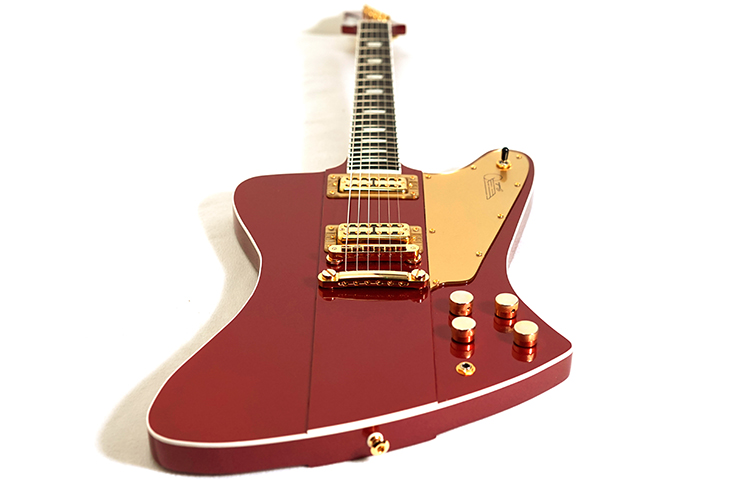
First up, let’s address the issue of price. Custom guitars are, of course, more expensive than production line factory-made guitars. With such diversity of pricing in the overall guitar market these days, it’s fair for some people to see price tags of £3000 and upwards and scoff, claiming that a guitar three times cheaper is just as good. We’ll get to that soon, but first, we may need to have some context regarding the perceived prices of guitars in general. Let’s do some quick sums...
Allow us to pick out two legendary guitars: a 1954 Fender Stratocaster and a 1959 Gibson Les Paul. These are obviously two of the most desirable and iconic guitars in existence, but back in the fifties they were just each company’s ‘standard’ product. Now, according to our research, a Fender Stratocaster (with tremolo, you had the choice back then!) in 1954 would set you back $249.50 in US dollars, plus another $39.95 for the case, totalling $289.45. That’s 1954 money so, adjusting it to today’s inflation, you come to the figure of $2733.71 for a Fender American Strat with a hard case. Converting the currency for here in the UK, it comes to £2088.31.
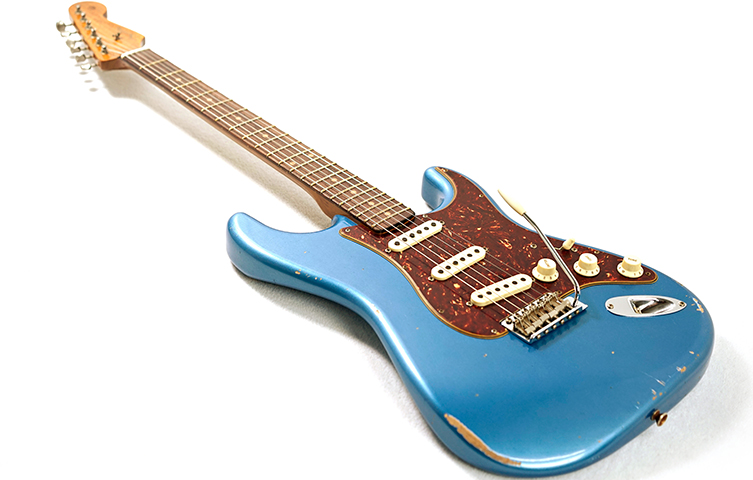
At the time of writing this article, March 2019, a Fender American Professional Stratocaster in 3 Tone Sunburst with a hard case (in other words, the equivalent model from Fender’s current USA catalogue) costs £1379. That’s essentially seven hundred pounds cheaper than the equivalent cost back in the fifties. £2088 actually gets you pretty close to Custom Shop prices, depending on your choices. It seems that Fender are actually fantastic value for money, regardless of their provenance!
What about the Les Paul? Okay, a 1959 Gibson Les Paul ‘Sunburst’ (with case, you didn’t get the choice with Gibson!) in 1959 cost $280, according to our research. Today, that translates as $2439.05 or £1863 in UK pounds. A Gibson 2018 Les Paul Standard on our site today sells for £1899 so the prices, give or take a few quid, haven’t changed in well over half a century! That isn’t bad!
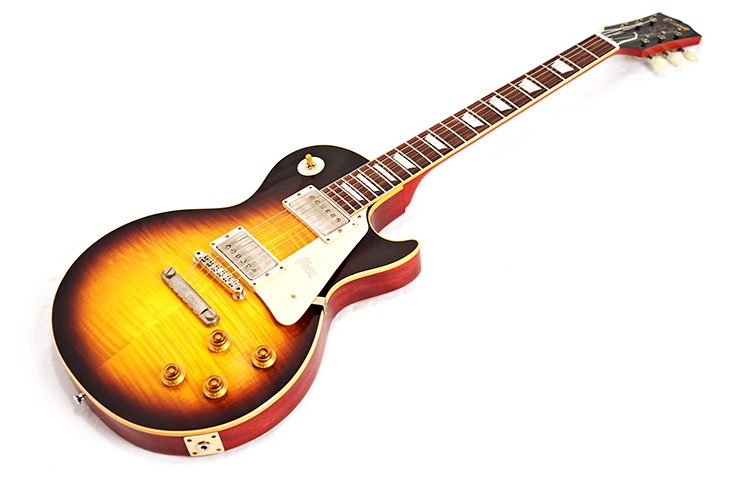
We’ve done this to put the cost of guitars into context. In reality, we’ve never had it so good in terms of guitar prices. Remember, there was no such thing as Fender Mexico, Epiphone or anthing else like it back in those days: you had US-made classics or you had Teisco/Univox/Danelectro catalogue guitars. We get such quality coming from the Far East now, it tends to skew the idea of value, especially in the context of instruments made in the US. Now, at guitarguitar we think a good guitar is a good guitar. The country of manufacture is of secondary concern to the quality of the instrument itself but the fact remains that American guitars are both more expensive to produce (US labour costs are comparatively high) and retain more of their value when reselling. Bear this in mind when imported guitars from all of the big brands keep increasing in cost year after year. Fender’s American Performer range actually puts a USA made Strat, Tele or Jazzmaster into your hands for less than a grand! That’s pretty phenomenal. These are not, however, Custom guitars so let us head back to the main thrust of the article.
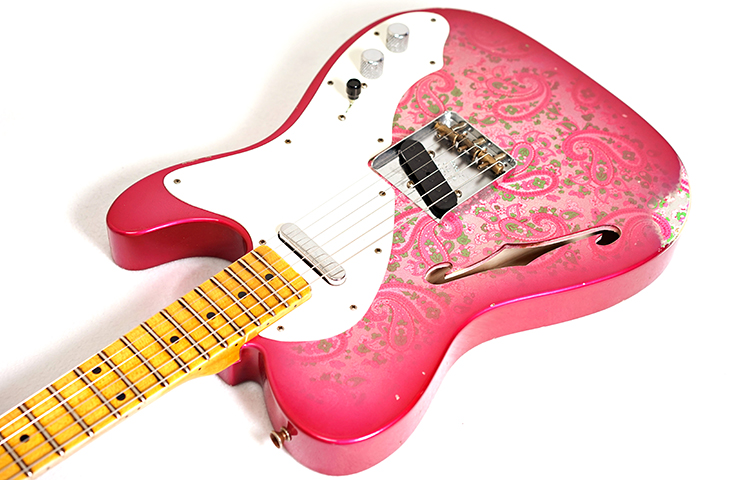
Standard US production guitars from big companies like Fender and Gibson are actually hand made to a greater or lesser degree, but this ratchets up to another level when we consider each company’s respective Custom Shop. The level of hand-made craftsmanship is considerably higher, as is the attention to detail and hand-finishing. Most companies make use of machines when it is more sensible to do so, such as employing Plek machines to level and dress the frets, but the more artisanal areas like neck shaping and body binding is carried out by hand. The neck pockets, joints, tenons and other parts that ‘fit’ together are made by highly experienced Master Luthiers. This results in a more closely worked on and inspected guitar, which in turn is ‘better’. This is partly what you are paying for.
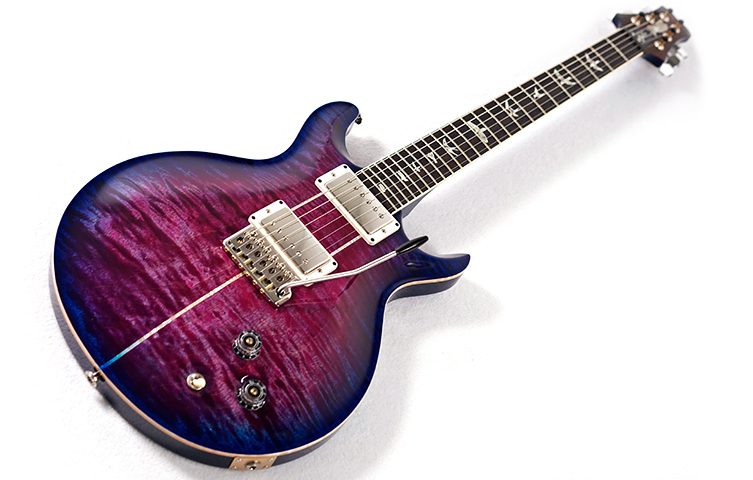
What else adds to the cost? The wood, components and hardware are of a higher quality too, making the overall instrument more expensive. Necks might be made from quartersawn Maple, which makes them stronger and truer than normal ‘riftsawn’ varieties. This is great for touring players who bring their guitars through a range of climates, humidities and temperatures.
Bodies will be made with select Swamp Ash and Mahogany, topped with absurdly beautiful decorative wood like quadruple ‘A’ graded Flame Maple and so on. We could write a whole blog on the relative merits of different tone-woods but suffice to say, there is much more to it than simply achieving a pretty looking end result.
Tremolo units will be heavy-duty, highly machined units by companies like Floyd Rose and Gotoh rather than licensed designs made with less solid materials en masse in a Chinese factory. This affects the performance and endurance of these parts, meaning you don’t have to keep replacing and tuning up lesser-quality hardware.
Pickups will be premium units, hand-made either in-house (Gibson Custombuckers, Suhr Thornbuckers, Fender Custom Shop Texas Specials etc) or carefully sourced models made by top brands like Bare Knuckle, Seymour Duncan and Fishman. As much as this helps elevate the instrument’s prestige, it also allows the guitar maker to carefully select and hand-wind pickups to fit the specific instrument, thereby making a better match between components. This hand-tuning is partly how custom guitars can offer more to the discerning player.
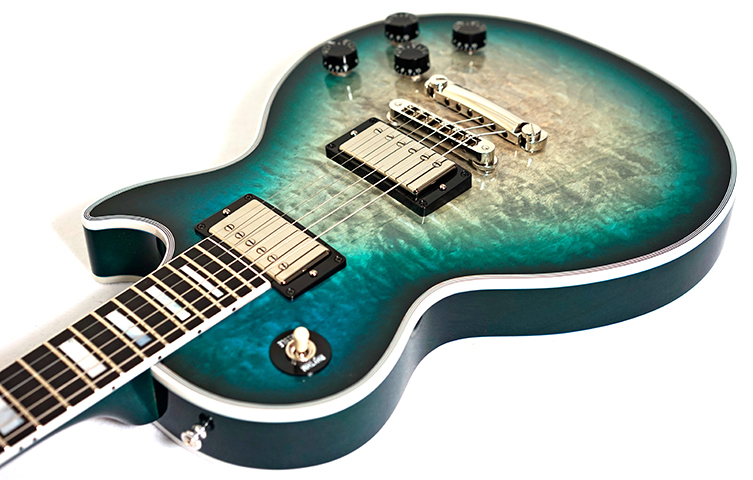
And make no mistake: discernment plays a big part in this! With custom guitar buying, you are agreeing to pay for the skill and experience of the builder as well as premium tone woods, extra inlay work and more decorative work. That includes the added cost of a distressed-or relic- guitar if you go in that direction. The exclusivity of the guitar also adds to the price, as does the type of finishing process. So, a Custom Shop made Les Paul that is exhaustively modelled after a vintage 1959 model and has the very best 2-piece mahogany body (not 4-6 pieces glued together), has exact vintage replica parts and hand-wound PAF pickups will cost double what a standard, non-Custom Shop Gibson Les Paul costs. Whether you want to spend that on a guitar is one thing, but the price is justified in man hours and upgrade costs. Factor in details like hand-routing versus computed controlled CNC routing and so on, it’ll start to make sense why these prices go higher. Both guitars are great, and neither will help you write better songs, but these two superficially similar guitars should be seen as being quite different because they are.
Certain attributes will always belong to certain style conventions. For example, a Les Paul will never have a bolted-on neck, but a Strat will almost always have one. The same goes for the carved, arched top. What about smaller companies? Crimson are a great example of taking these accepted norms and playing with them. Their Descendent guitar is roughly a T-Style but more often than not has two humbuckers. This is itself isn’t very unusual but once you take in Crimson’s inspired use of salvaged wood (often literally held together with metal rods, other times with signs of tree growth within the bodies!), you start to see what is possible with some invention and lateral thought. Crimson guitars are made in the UK and are also very affordable for Custom built guitars, making them a very shrewd, not to mention interesting, choice.
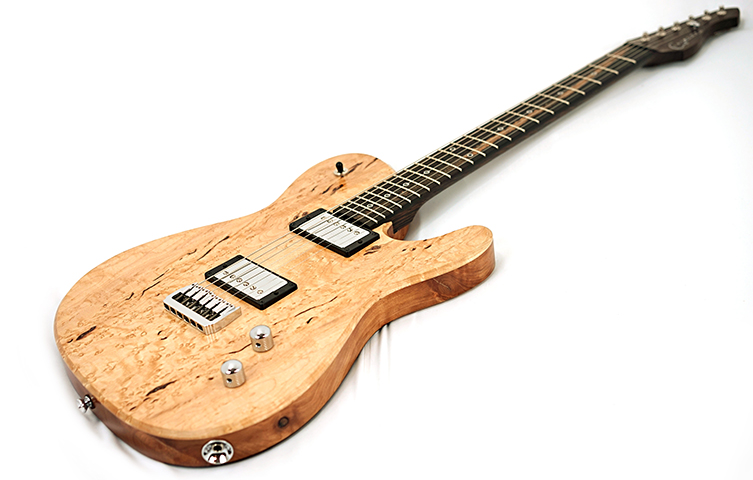
Most other brands stay close to the accepted forms but play around with style and finishes within those frameworks. Tyler are a good example. Their guitars are completely hand-made and are considered by many authorities to be perhaps the greatest S-type guitars in the world. They have ingenious bespoke circuitry and are finished using methods that are largely still a secret (and are often tremendously bold to look at!). Owning one of these is a defining moment for many fans of Custom guitars (as is owning any of the guitars mentioned in the blog, to be frank) and they cost around £5000. This is similar in cost to top price Gibson Custom Shop Les Pauls and Fender Custom Shop Master Built Stratocasters.
The point we are making here is that the world’s best quality custom made brand new electric guitars can be had for around £5000. If that sounds expensive (and yes, out of context, of course it is), let us compare this with the cost of a professional cello. According to Bishops, expert dealers in such instruments, a professional pre-owned cello can cost between £5000 and £50,000+! New professional grade cellos start at around £14,000. There’s a little perspective for you!
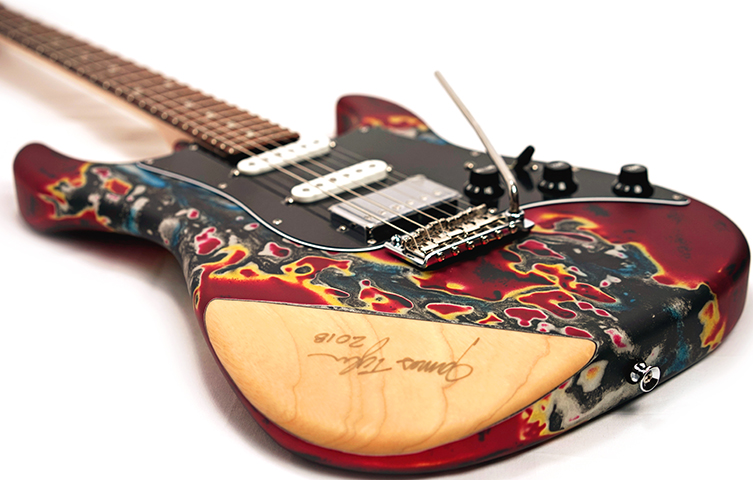
So, who plays a Custom guitar? Good question! There are a few key customers for these high-end instruments. The first is the professional musician who has very specific tastes and wants to be able to fine tune the guitars he plays to have his preferred spec. We are thinking of people like Mark Knopfler here, or John Petrucci.
The second is the touring player who owns actual vintage guitars and wants something as similar as possible to play on without the risk (and huge insurance expense) of taking their vintage museum-piece guitars out on tour. It’s a widely held opinion that a Master Built Fender Stratocaster will look, feel and sound closer to an actual vintage guitar than anything else on the planet so the cost of buying one of these for touring is very understandable: a £4k Relic Strat is a safer prospect to tour with than a £25-40k vintage Strat! It will likely behave better in terms of temperatures and tuning, too!
Another customer of course is the well-heeled guitarist who wants to own the very best in quality and prestige that money will buy. Not everyone intends to play live but all guitar players love great guitars! Those with the cash and inclination will find a whole world of opulence with custom made guitars from makers like PRS, Suhr, Tyler, Gibson Custom Shop and Music Man’s ‘BFR’ Ball Family Reserve. There are many more, of course!
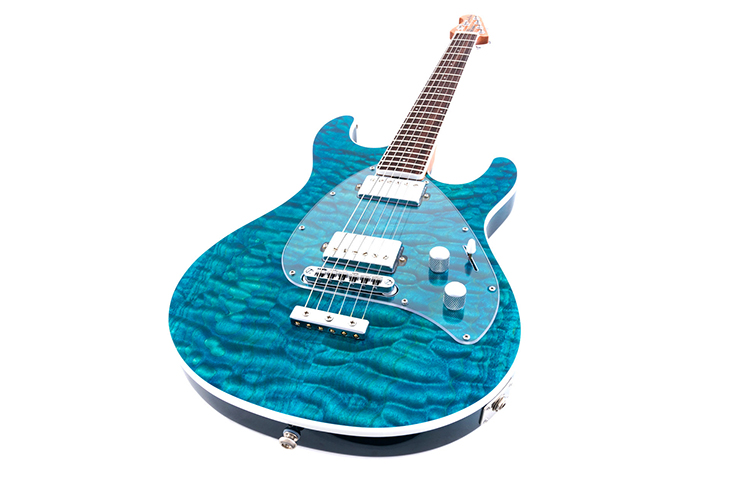
One thing does need to be addressed, though. Does the fact of a guitar having a hand-routed body instead of a computer-controlled CNC routed body actually make the guitar better? Do hand-wound pickups automatically sound 'better' than machine-wound versions? Is American labour better than South Korean? Indeed, these are all important questions. The problematic word here is ‘better’. The only truthful answer is ‘not necessarily’. Spending more time making a guitar certainly makes it more expensive but that does not automatically make it ‘better’, any more than a nitrocellulose finish objectively improves the sound of a guitar over another type of lacquer. Nitro finishes may or may not change the guitar's sound (another big debate...), but everyone’s ears are different, as are their expectations. It is reasonable to pay more for a nitro finish because it is a time-consuming and potentially toxic process, therefore needs special care and longer man-hours to complete the work, not to mention the expertise of the builder coming into play too. But that does not, and never has, made a nitro-finished guitar ‘better’ than a guitar with a polyurethane finish since it depends entirely on what you think a ‘good’ sounding guitar sounds like! It’s fine to get carried away with the magic and storytelling of guitar mythology as long as we separate that from objective facts.
Also, the law of diminishing returns is as true of guitars as it is of everything else you buy in the world: after a certain tipping point (just where exactly that tipping point sits is yet another long debate but let's say a grand to a grand and a half), you need to spend a lot more cash to get a slightly ‘better’ guitar, if indeed that is even quantifiable. Does one type of neck glue sound better than another? We honestly can’t say: there are so many variables outside of the guitar itself that contribute to its tone: the player, the string gauge, the pick, the amp (player and amp being BY FAR the foremost of these variables) and many other factors...selecting one (let’s face it) minor element from within the guitar is going to be tough to single out and comment on. The use of hide glue in Custom Shop Gibsons is a point of historical authenticity, which is something you are buying into when you go for these guitars. It is not a tone-based detail, though it may be the case that Hide glue does sound better! The point is, it’s the story that matters here, and the attention to detail.
Conclusion
So, the final point. Are Custom guitars worth it? Well, what do you guys think? Here is our opinion, based on everything we know, everything we’ve played and everything we’ve used. Do you need a Custom guitar to be a serious musician? No. Will a Custom guitar make me excited about playing and thus play more? Almost definitely yes. Will a Custom guitar make me play better? Yes, without question. Will my audience at live gigs be able to hear the difference between my USA Strat and my Custom Shop Strat? Probably not. Are Custom guitars worth it? Definitely yes. If you can afford it (and we offer finance, by the way), owning a Custom guitar will be the single biggest positive step for your playing that you can make. Nothing ups a musician’s game like a truly great instrument. You can, however, be completely happy and effective as an artist or hobbyist without 'going Custom' and we wholeheartedly support that, too.
It’s really this simple: do you love guitars? Do you want something incredible that you’ll love and play for decades? Do you want something that feels perfect to you, that looks perfect to you and makes the sound that’s in your head? Go for it, then! The Custom guitar world is your oyster! Are they overpriced? Not really, compared to vintage guitars and the standard cost of some other instruments. Plus, what other investments in time and money can give back such joy?
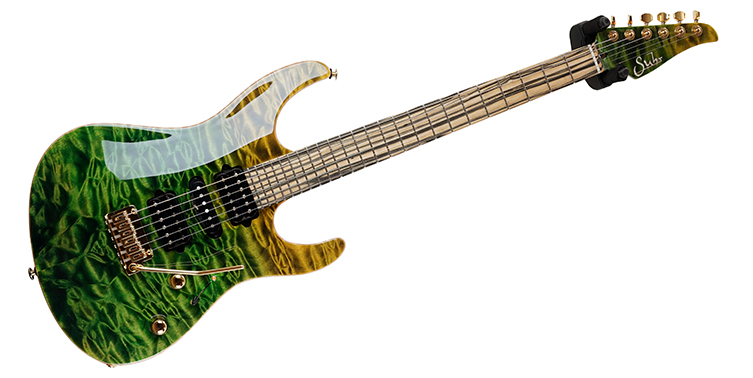
These are our thoughts on the Custom guitars debate. We’d love to hear yours too. Do you dream of a custom guitar? What would you go for if money were no object? Let us know in the comments!

